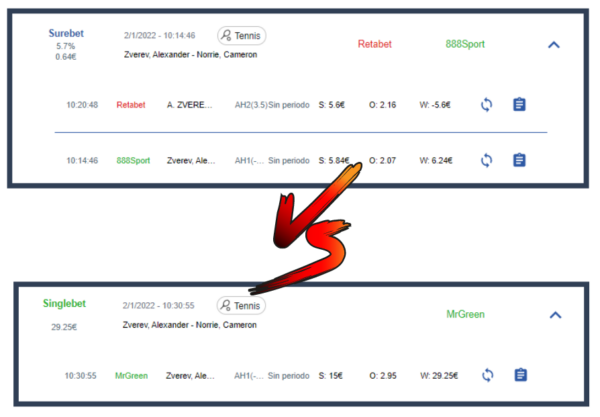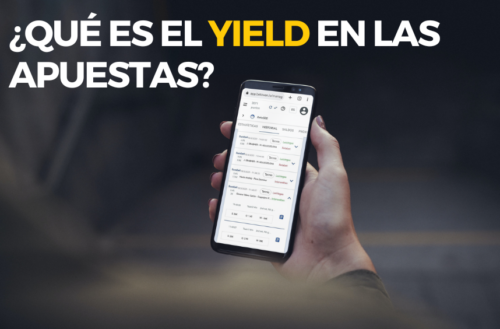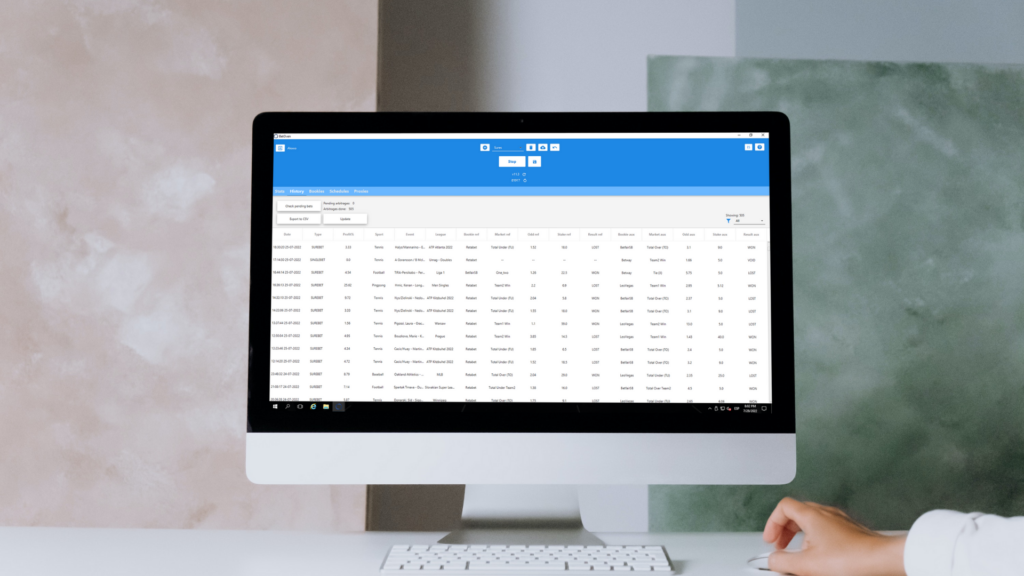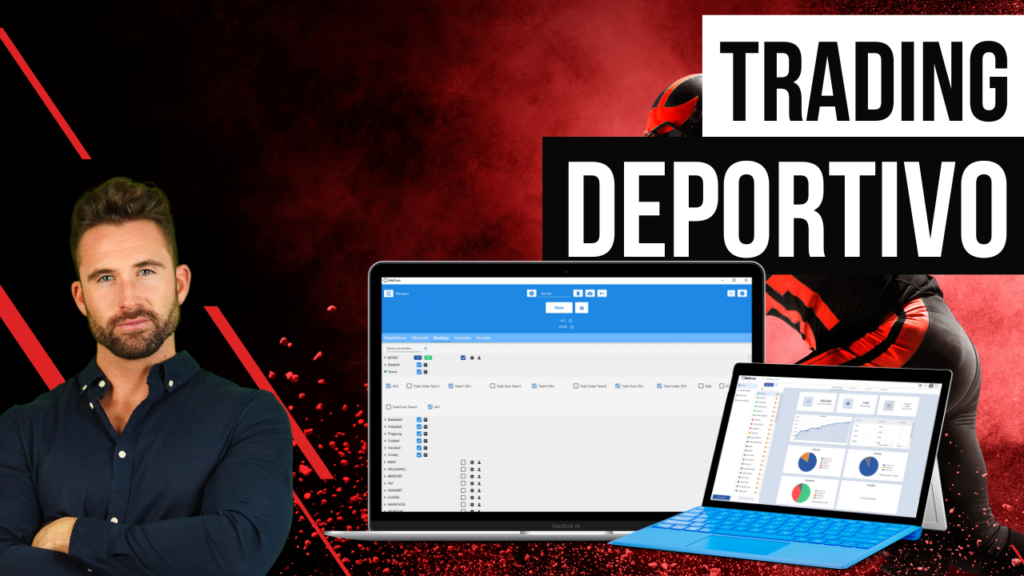The word singlebet, as you can imagine, comes from English, and can be translated as single bet.
It is a concept that is rarely used in the betting world, but it makes a lot of sense when it comes to other strategies such as sports arbitrage.
Índice de Contenidos
ToggleWhen does a Singlebet occur?
If you are doing sports arbitrage (surebets) you already know that BetOven (our surebetting bot) places at least two bets when placing a surebet.
In a normal working situation, both bookmakers are set up as primaries and BetOven places the surebet which has more value first and is therefore more likely to change its odds or close its market.
Once this is done and the bet is closed, the other bet, the most stable, and therefore the one with the least chance of odds change or market closure, follows.
If when we are making a surebet, the second place bet changes its odds or closes its market, we will not be able to complete the surebet and we will be left with a single bet, or singlebet.
Additionally, we can also have a singlebet if there are limitations in one of the two bookmakers involved in the surebet.

In other words, to simplify: a singlebet is a surebet that couldn’t be completed due to changes in the bookmakers. At least if we focus on this concept when we are making surebets.
Can we avoid doing Singlebets?
It all depends on the reason why we had that singlebet.
If the singlebet is caused by a bookmaker’s limitation, there is nothing we can do about it. If this singlebet is given by a market close, we will not be able to do anything either, as we will have no way of betting.
When a quota change occurs, there are two things we can do:
1. Automatic Singlebet Closing
If we do not modify the singlebet closing parameter BetOven will keep trying to close this surebet throughout the event, waiting for a favourable odds change to close it as a Surebet.
That is why it is very interesting to leave a singlebet unclosed when it has been produced by a change of odds.
2. Closing Singlebet as negative Surebet
If we have had a change of odds we can do so by closing this singlebet as a negative surebet. Modifying the parameter: Try to close profit singlebets with values greater than -100 such as -10 or -5.
In general I do not recommend closing them, because singlebets have value as they are bets with odds above the usual, otherwise we would not be able to make a surebet, although they add volatility to the result.
However, closing them will result in a 100% guaranteed loss, even if it is of lesser value than if we lose the singlebet.
Our statistics tell us that it is preferable to leave them open, valuing a long-term partnership with BetOven.
But I leave the choice up to you to decide!
Can we reduce the rate of singlebets?
Many times, we come across rookie arbers who ask us if it’s possible to avoid singlebets altogether. And the answer to this question is complex.
It really depends on the reason why the second bet in the surebet couldn’t be placed.
If the singlebet occurred due to a market closure, we won’t be able to avoid it, as there will be no available odds to place the bet.
If, on the other hand, it happened due to an odds change, there are still options to complete the surebet. Either because BetOven performs a second check and the odds change again, allowing us to close the surebet, or because we decide to close the surebet at a loss.
I’ll talk more about this second option later—for now, just keep in mind that some singlebets may eventually become surebets after subsequent BetOven checks during the event.
But there’s still one last reason a singlebet might occur: limitations applied to the bookmaker that was supposed to place the second bet and complete the surebet.
More information is available in the following article:
Can we reduce the rate of singlebets?
Singlebets caused by limitations in the second bookmaker are the ones we can avoid by conducting a thorough analysis of the bookmakers using different tools, such as the BetOven app’s history and its notifications section.
Doing a good job in this regard will reduce singlebets and, therefore, decrease BetOven’s volatility when operating in surebets mode.
Do singlebets have value?
In other words, by placing singlebets over time, will we make money?
The reality is that it will depend on the reason behind the singlebet.
If the singlebet is caused by limitations in the second bookmaker, then it will actually be a value bet and will bring us profits in the long run. However, if the singlebet is the result of a market closure or an odds change, the first bet will lose its value and lead to losses over time.
How much? In the case of Spain, I have to say that we will usually lose around one third of the profits made from surebets. What does this mean? Basically, we’ll keep two-thirds of the profits generated by surebets, making this a much safer investment than most of the options you’ll find on the market.
Can we reduce this volatility somehow? Yes, although in the long run we’ll end up losing, I’ll explain it in another video, where I’ll talk to you about a very specific parameter.
In the case of Italy, we can say that generally, singlebets have value and provide a yield very similar to that of valuebets. What is the reason for this difference?
Mainly, it’s due to the way many Italian bookmakers limit profits: by applying extra delays (almost from the moment we start betting with them).
In other words, in the case of Italy, we’ll have a higher rate of singlebets, but they are very beneficial for our work with surebets. On the flip side, they will bring more volatility to our results.
And that wraps up this explanation about singlebets. Now you know what they are, why they happen, and how they can impact your results with BetOven.
While they can’t always be avoided, understanding their origin and managing them properly will help you reduce their impact and make better decisions in your operations.
See you in the next video, hunter. Let’s keep stacking those profits!
Videos on the subject of singlebets due to limitations:
Do you know BetOven?
If you don’t know him, I recommend you watch the following video… I promise you won’t be indifferent:






